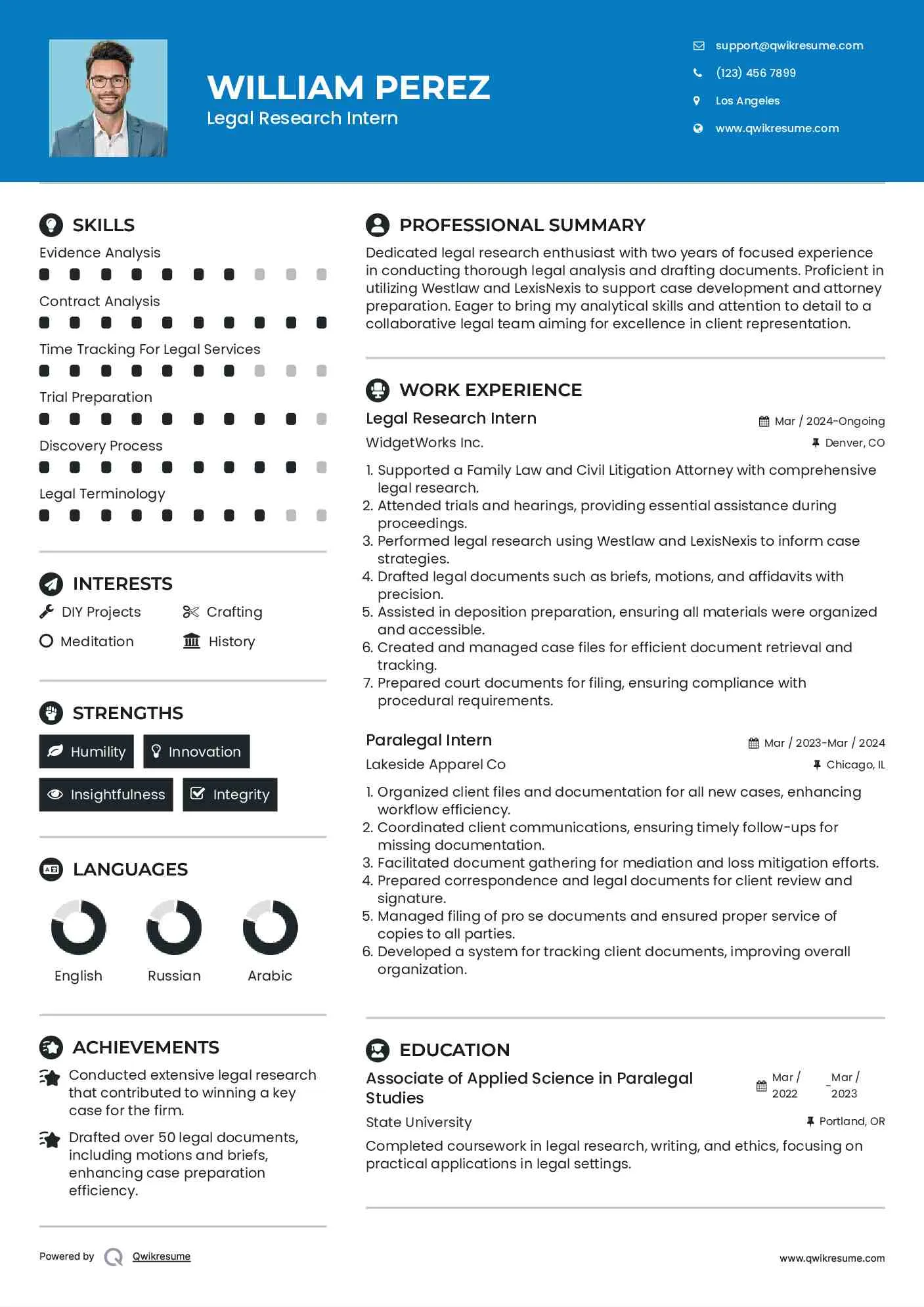What Is a Criminal Justice Internship?
A criminal justice internship is a structured, supervised work experience designed to provide students and recent graduates with practical experience in the field. These internships offer invaluable opportunities to learn about the day-to-day operations of various criminal justice agencies, including law enforcement, courts, corrections, and juvenile justice systems. They allow individuals to apply their academic knowledge in real-world scenarios, develop professional skills, and network with experienced professionals. Internships are crucial for anyone aspiring to a career in criminal justice, offering a pathway to better understand the complexities of the field and make informed career choices. They often involve tasks such as assisting with investigations, conducting research, observing court proceedings, working with inmates, or supporting probation officers. These experiences are designed to bridge the gap between theory and practice, helping interns gain the confidence and skills needed to succeed in their future careers. Securing an internship is a pivotal step towards a rewarding career, making the cover letter an essential tool.
Why an Internship Matters for Criminal Justice
Internships are not merely stepping stones; they are fundamental building blocks for a successful career in criminal justice. They offer a competitive advantage in the job market, as they provide hands-on experience that sets candidates apart from their peers. Through internships, individuals can build professional networks, gaining insights from experienced professionals and establishing connections that can lead to future employment opportunities. Internships allow for the development of essential skills such as critical thinking, problem-solving, and communication, which are highly valued by employers. Furthermore, these experiences enable individuals to explore different areas within the criminal justice system, helping them to identify their interests and career goals more effectively. Many internships also offer the chance to earn academic credit, further contributing to the overall educational experience. By participating in an internship, students can gain practical experience in various roles such as legal, investigative, corrections, and more.
Key Components of a Criminal Justice Cover Letter
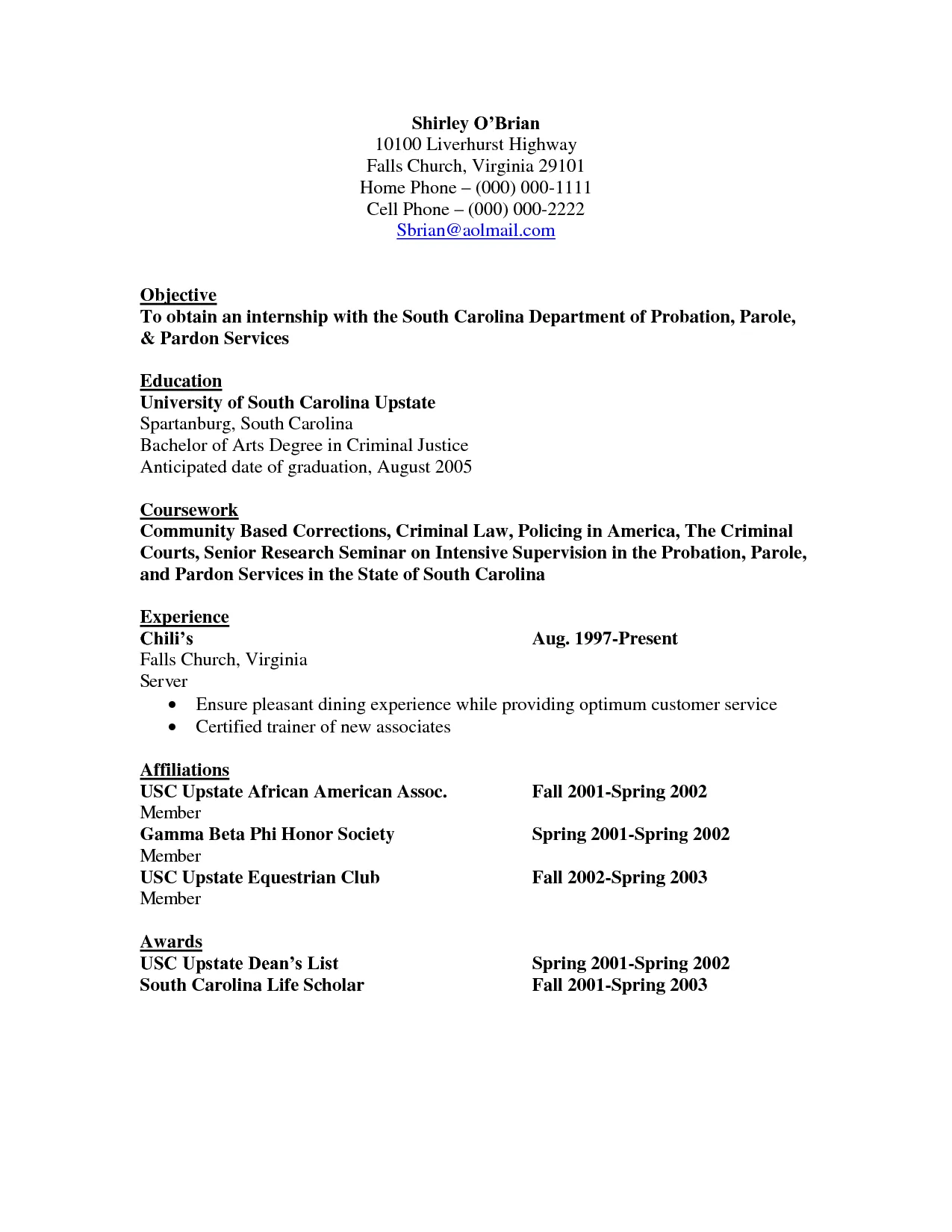
Crafting a compelling criminal justice internship cover letter is an art form, requiring careful attention to detail and a strategic approach. The cover letter serves as your introduction, providing an opportunity to showcase your personality, enthusiasm, and suitability for the position. It should complement your resume, elaborating on your skills, experiences, and qualifications. Key components include your contact information, the recipient’s information, a compelling greeting and introduction, a section highlighting your relevant skills, and details about your education and any previous work or volunteer experience. It is essential to express your genuine interest in the internship and clearly articulate why you are a good fit for the role. A strong call to action, such as requesting an interview, and a professional closing, complete with your signature, are critical elements. Additionally, formatting, proofreading, and tailoring your letter to the specific internship are essential. The cover letter is your first impression; it should be polished and professional.
Your Contact Information
Begin your cover letter by providing your contact information. This section is crucial for the employer to easily reach you. Include your full name, address, phone number, and professional email address. Ensure your email address is professional and reflects positively on your candidacy. Avoid using informal or childish email addresses. The contact information should be clearly displayed at the top of the letter, usually aligned to the left or right. Double-check all details for accuracy to prevent any communication issues. A well-presented contact section reflects your attention to detail and professionalism. This allows the employer to immediately know how to reach you, making this section vital for the overall effectiveness of your cover letter.
The Recipient’s Information
Following your contact information, provide the recipient’s details. This includes the name of the hiring manager or the person to whom the cover letter is addressed, their title, the department, and the organization’s name. Researching the specific contact person is highly recommended as it personalizes your cover letter and demonstrates initiative. If you are unable to find a specific name, use a professional title like ‘Hiring Manager’. Always include the organization’s name and address. This section shows that you have taken the time to learn about the company and the specific opportunity, which can greatly impress the reader. Accuracy in this section conveys respect for the organization and shows your professionalism, setting the stage for the rest of your letter.
Greeting and Introduction
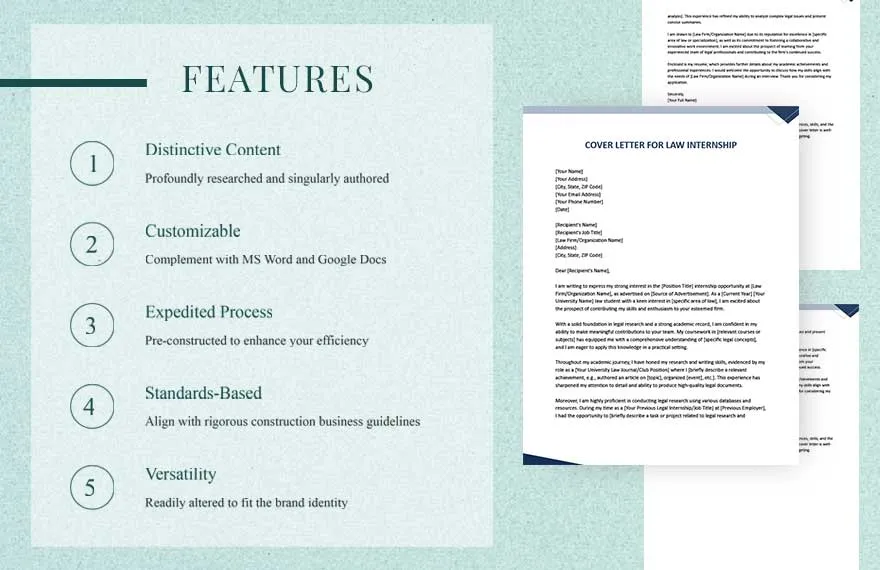
The greeting and introduction are your first opportunity to make a positive impression. Start with a professional greeting, such as ‘Dear Mr./Ms. [Last Name]’ if you know the recipient’s name. If the name is unavailable, ‘Dear Hiring Manager’ is appropriate. In the introduction, state the specific internship you are applying for and how you learned about the opportunity. Briefly mention your enthusiasm and highlight a key skill or experience that makes you a strong candidate. The introduction should capture the reader’s attention and clearly state your purpose. It should be concise, enthusiastic, and tailored to the specific internship. This sets the tone for the rest of your letter and shows your genuine interest in the position. Aim to make your opening paragraph compelling and memorable, showcasing your eagerness to contribute and learn.
Highlighting Relevant Skills
In this section, focus on the skills and qualifications that align with the internship’s requirements. Review the job description carefully and identify the key skills the employer is seeking. Provide specific examples of how you have demonstrated these skills in your academic, professional, or volunteer experiences. Use action verbs to describe your achievements and responsibilities. Common skills for criminal justice internships include communication, critical thinking, problem-solving, attention to detail, and the ability to work in a team. Quantify your accomplishments whenever possible, such as by mentioning the number of cases you assisted with or the impact of your contributions. This section is about demonstrating how you have used your skills in practical situations. Providing specific examples helps the employer see the value you would bring to the internship.
Education and Academic Achievements
Detail your educational background, including your degree, major, and any relevant coursework. Highlight any academic achievements, such as a high GPA, honors, or relevant awards. Mention any coursework that directly relates to the internship, such as courses in criminal law, criminology, or forensic science. Provide details about any research projects, thesis work, or presentations you have completed, especially if they relate to the internship’s focus area. This section demonstrates your academic foundation and your commitment to learning. If you are a current student, include your expected graduation date. Your academic accomplishments provide the employer with context for your capabilities and your understanding of criminal justice principles, showcasing your preparedness for the internship.
Work Experience and Volunteering
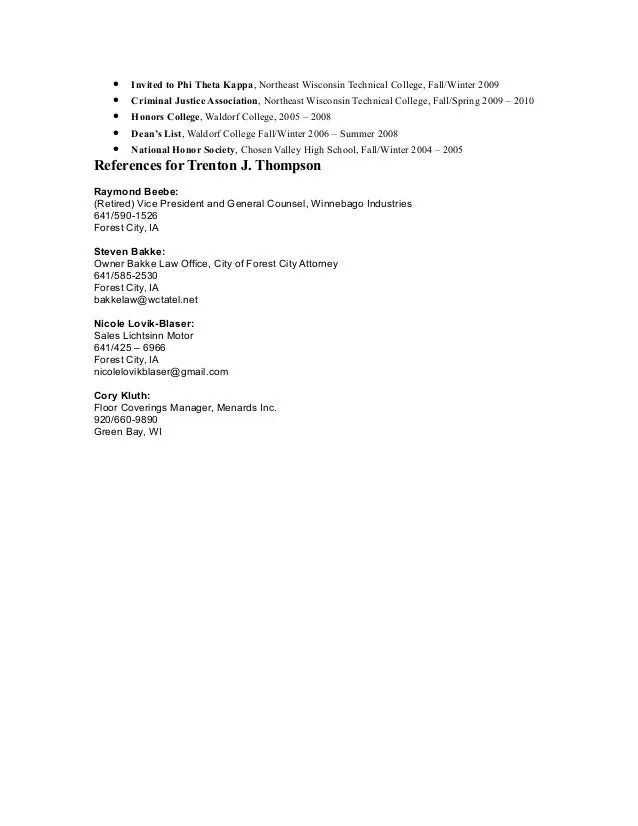
Include any work experience, internships, or volunteer activities that are relevant to criminal justice. Describe your responsibilities and accomplishments in each role, using action verbs. Even if your experience is not directly related to criminal justice, highlight the transferable skills you have gained, such as communication, teamwork, or problem-solving. For example, if you have worked in customer service, you might discuss how you have developed strong communication and interpersonal skills. Volunteer experience, particularly if it involves working with vulnerable populations or supporting community initiatives, can demonstrate your commitment to helping others. Showcasing your experience provides valuable insight into your capabilities and your ability to handle responsibilities and work effectively in a team.
Expressing Enthusiasm and Interest
Show genuine enthusiasm and interest in the specific internship and the organization. Explain why you are excited about this opportunity and what attracts you to the field of criminal justice. Mention any research you have done on the organization and what specifically interests you about their mission or work. Demonstrate that you understand the role and how your skills and interests align with the internship’s objectives. Your enthusiasm should be clear and sincere, showcasing your dedication to the field. Highlighting your interest in the organization will resonate with the hiring manager. Expressing your genuine passion will help you stand out from other candidates. Mentioning your long-term career goals within criminal justice is an excellent way to show your dedication and long-term commitment to the field.
Why You’re a Good Fit
Clearly articulate why you are a good fit for the internship. This involves summarizing your key skills, experiences, and qualifications, and explaining how they align with the internship’s requirements and the organization’s needs. Provide specific examples of how you can contribute to the team and achieve the internship’s goals. Show the employer that you understand the challenges and opportunities of the role and how your skills can help you succeed. This section is where you can connect all the dots and demonstrate that you have carefully considered the internship requirements and the organization’s goals. Highlight any unique skills or experiences that set you apart from other candidates. This section is your chance to illustrate your value proposition and why you’re the best candidate.
Call to Action
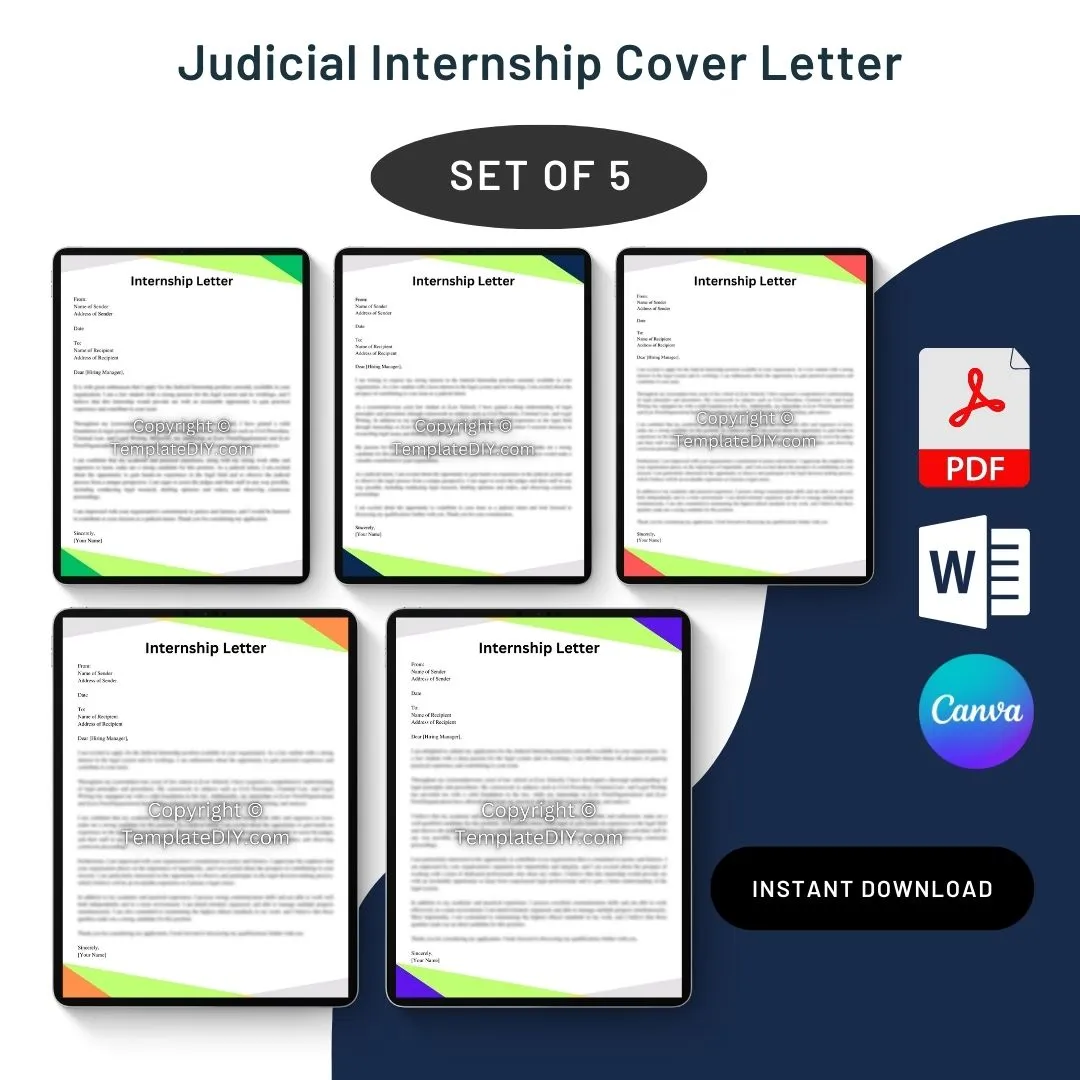
End your cover letter with a clear call to action. Specifically, request an interview and express your availability for a meeting or phone call. Indicate your willingness to provide additional information or answer any questions the employer may have. Be confident and proactive in this section. State that you are eager to discuss your qualifications further. This action is crucial because it moves the application forward. You are not just applying; you are also suggesting the next step. Including a call to action shows initiative and professionalism. Offering to provide more information or answer questions reinforces your enthusiasm and demonstrates your commitment to the role.
Closing and Signature
Close your cover letter with a professional closing, such as ‘Sincerely,’ or ‘Respectfully’. Below the closing, leave space for your signature. If submitting a digital cover letter, you can type your name. If you are submitting a printed version, sign your name in blue or black ink. Ensure that your name is typed clearly beneath your signature. Provide your contact information again in the closing, just in case. This final touch maintains professionalism and makes it easy for the employer to contact you.
Formatting and Design Tips for Your Cover Letter
Pay close attention to the formatting and design of your cover letter. Use a professional font like Times New Roman, Arial, or Calibri, and maintain a consistent font size (11 or 12 points). Use single spacing within paragraphs and double spacing between paragraphs. Use clear and concise language, avoiding jargon and overly complex sentences. Keep the letter to one page and use clear headings and subheadings to organize your content. Ensure your letter is well-aligned, and use a professional layout with appropriate margins. Proofread your letter for any errors in grammar, spelling, and punctuation. A well-formatted and designed letter is easy to read and reflects professionalism. Your cover letter should mirror the same professional tone you’d use in any professional setting.
Proofreading and Editing Checklist
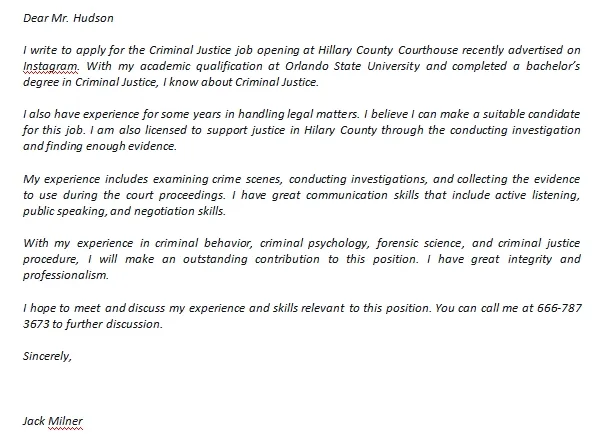
Thorough proofreading and editing are essential. Check your cover letter for any grammatical errors, spelling mistakes, and punctuation issues. Ensure that the sentences are clear, concise, and easy to understand. Verify that you have used the correct names, titles, and addresses. Ask a friend, professor, or career counselor to review your cover letter for feedback. Fresh eyes can often catch errors you might have missed. Proofreading is not just about catching mistakes, it’s about improving the overall quality and clarity of your writing. A polished and error-free cover letter leaves a positive impression.
Common Mistakes to Avoid
Avoid common mistakes that can undermine your application. Do not use generic or mass-produced cover letters. Tailor each letter to the specific internship and organization. Avoid typos, grammatical errors, and unprofessional language. Do not exceed one page. Be concise and focus on relevant information. Avoid exaggerating or lying about your skills or experience. Do not include irrelevant information or personal details. Avoid negative comments about previous employers or experiences. Avoid vague statements. Making these errors can seriously reduce your chances of getting the internship. Careful attention to detail is crucial when creating your criminal justice cover letter.
Using Keywords Effectively
Incorporate keywords from the job description into your cover letter. Review the internship posting and identify the key skills and requirements the employer is seeking. Use these keywords naturally throughout your letter, particularly in the sections where you highlight your skills and experiences. This helps to demonstrate that you possess the qualifications the employer is looking for. Be mindful of keyword stuffing; your letter should still be easy to read and should not sound unnatural. The use of keywords can help your application get noticed by applicant tracking systems (ATS) and demonstrate to the hiring manager that you meet the requirements.
Tailoring Your Letter to the Specific Internship
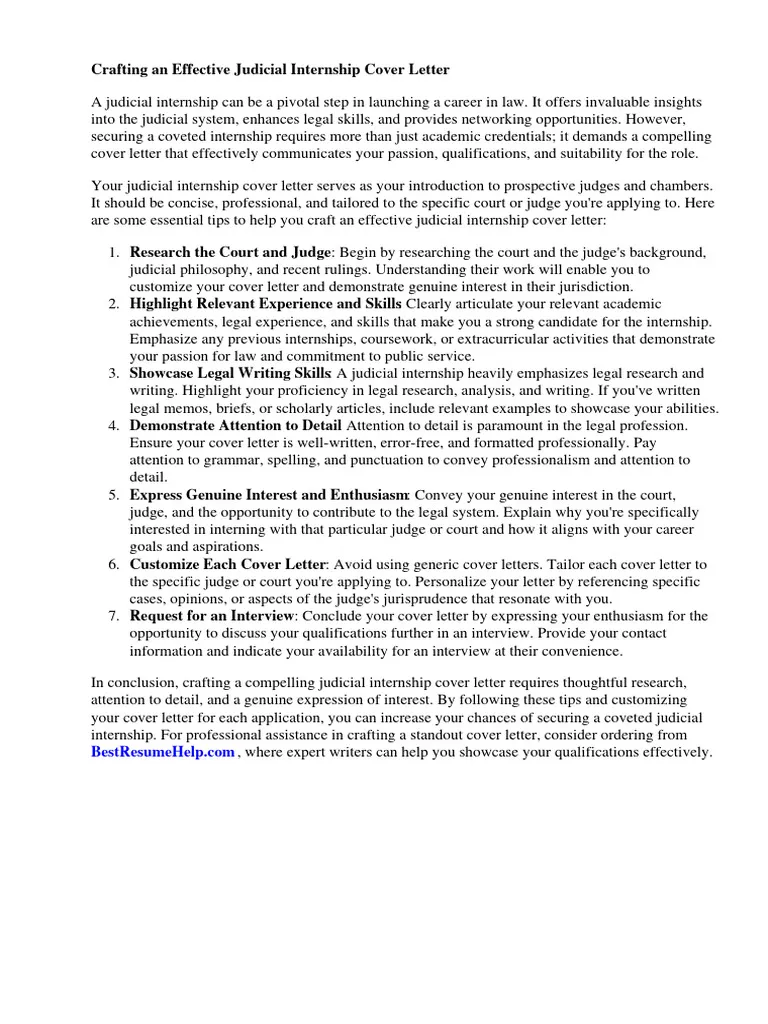
Always tailor your cover letter to the specific internship you are applying for. Do not send a generic letter to multiple employers. Research the organization, the specific internship, and the duties involved. Explain why you are interested in this particular opportunity and highlight the skills and experiences that align with the requirements. Customize each cover letter to show that you have taken the time to understand the role and the organization’s goals. Tailoring your letter demonstrates initiative and shows that you are genuinely interested in the opportunity. Make it clear that your application is personalized, not just a generic submission. Doing so will show the employer that you care about the role.
Example Criminal Justice Internship Cover Letter
While an example cover letter can be a valuable guide, remember to customize it to fit your specific situation and the particular internship. Look at sample cover letters online, but do not copy them verbatim. Use the examples as a template to understand how to structure your own letter. Customize the example by inserting your information, skills, and experiences. Be sure the language is professional and reflects your personality. You can modify the example to highlight your strengths. Adapt it to align with the specific requirements outlined in the internship posting and remember to proofread it carefully before submitting your application.
Additional Resources and Templates
Utilize additional resources to enhance your cover letter. Many online resources offer templates, samples, and guides for crafting effective cover letters. Explore websites that specialize in career advice and job applications. Seek advice from career counselors or mentors who can provide personalized feedback. Review examples of successful cover letters from students or professionals in the criminal justice field. Consider using cover letter-building software to help you structure your content and format your letter professionally. These resources can provide you with the tools and guidance you need to create a compelling cover letter that showcases your skills and qualifications.
